From the Iconic Insights Podcast: The Power of Five, the Importance of Mindset, and How to Become a Person of Significance.
Our latest DSN Podcast, Iconic Insights, provides an opportunity to learn from some of today’s greatest leaders. In the podcast’s first interview, social-selling thought leader Heather Chastain sits down with New York Times bestselling author John C. Maxwell to talk about his book, The Power of Five for Network Marketing; the importance of mindset; and how to become a person of significance (and why that matters). You can listen to this podcast or watch the video. Here’s a portion of their conversation.
Heather Chastain: Your book breaks down five key principles for the direct selling industry, but it also really has broad applicability for all entrepreneurs, would you agree?
John C. Maxwell: Oh, totally. The Power of Five is about essentials. Everyday essentials. People don’t realize that when I wrote that book, it was birthed out of people asking me, “How have you written so many books in your life?” So, I began to kind of go inside and say, what are the five things I do that are just everyday essentials? You don’t skip a day. You do them every day. The formation of the book was really from answering that question.
And I would tell people, “Every day I read; every day I think; every day I file; every day I ask questions; every day I write. Every day.”
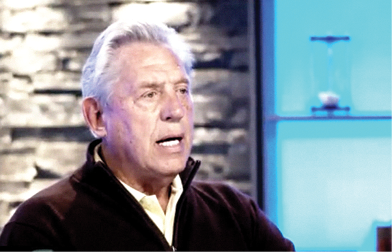
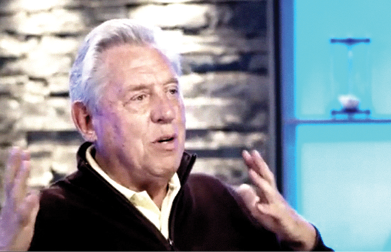

Out of that, people—especially in the direct marketing business—would say, “Well, what are the five things we need to do to really be successful?”
Heather: Those parallels manifested as The Power of Five: Growth, connection, mindset, leadership and then significance. When you talk about mindset, one of the things you say in the book is that mindset is really the thing that sets successful people apart from unsuccessful. Why is that so critical?
John: That’s a question you and I could talk the rest of the day on because it’s expansive, and it’s powerful. First, if a person says, “just give me one thing that’s going to help me to be successful”—the one thing I’d talk to them about is mindset. Start with perspective: How I view things is how I do things.
Everything that I do is based upon my mindset and my perspective. My limitations are not what’s before me; my limitations are what I see and how I think.
For example, during COVID and during difficult times people cope with adversity, struggle and difficulty. So, I talk to them about mindset. One of the things I explain to them is that life is supposed to be difficult. It’s not supposed to be easy. Everything worthwhile is uphill. And once we accept the fact that life is difficult, it no longer becomes difficult.
The moment I think life should be easy and things should be coming my way, I’m setting myself up for failure because my perspective only entertains that.
Heather: Have you noticed that people who are committed to having that positive mindset and an abundance mentality don’t compare themselves to others? How much harder is that now in the world of social media and instant access to how everybody else appears to be living? It’s a bit more of a struggle, isn’t it?
John: It’s more of a struggle. It’s more of a daily discipline, but it’s also a more of a difference maker. You have to understand there’s a little bit more effort you have to put in, but the return has never been so big.
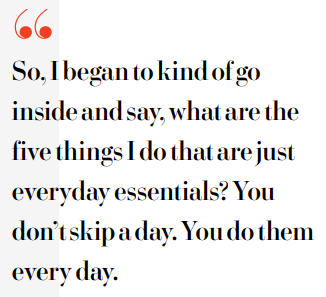
Because what happens is during adversity, people freeze. They stop. So, I tell people, you don’t even have to run. You just have to walk. If you can walk, you’re going to separate yourself so far from most people because you’re willing to take action.
We’ve done a lot of work and research with kids in teaching values training in schools, and what we’ve found is the better values a person has on the inside, the less validation they need on the outside. The values I have inside of me determines the perspective of how I see people. For example, if I value me, I can value you. And, if I don’t value me, I won’t value you.
Heather: So, when we’re talking to entrepreneurs who are looking for specific ways they can improve their standing and the impact they’re making in their companies, when they’re thinking about mindset, they need to be thinking about their value set and be just as vocal about their values and what they believe and what they want as they are about mindset and these other things.
John: No question about it. Values determine perspective. If you can be a person with good values in your life, you’ll have a healthier perspective about yourself and others. That makes the difference, as far as how successful you’re going to be.
You hear the expression, “All’s well that ends well,” but all’s really well that begins well. Begins well is mindset. Ends well is automatic. Begins well is not automatic.
Heather: Begins well is deliberate. You have to actively craft your beginning. And I think, as entrepreneurs and leaders, whether you’re starting your own business in the direct selling channel or somewhere else, this idea of anticipation is really interesting, because it’s so contagious, isn’t it?
John: Totally contagious. And your people pick up on it immediately. When we’re on the road, and maybe I’ve got three or four speaking gigs, I get up every morning, and say, “My gosh, think of the people we’re going to add value to today. Think of the people that when we give them a resource, or put a book in their hand, they’re going to be forever changed.”
Once you have that lifestyle of anticipation, it creates a mindset of expectation. And a mindset of expectation brings incredible amount of fruit in your life and to your life.
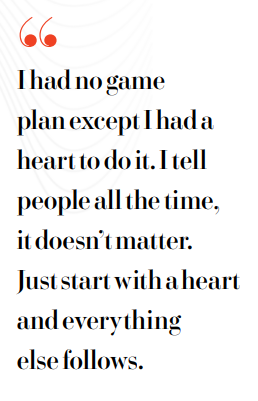
Heather: I’d like to anchor back on the last key that you gave of the five, which is about significance. One of the reasons I’m an entrepreneur, and so many others, and I assume you as well, is because you want to make a difference in the world, and bring value to the world, in a way that’s beyond your immediate circle. Did you start out before anybody knew your name as wanting to be a person of significance? Or did you realize the power of that once you had some success and became more influential?
John: Here’s the problem with success: When you start off, you’re not as bad as people think you are. You’re never good the first time, so you’re fumbling. But if you’re really good and are consistent, consistency compounds.
I started out knowing nothing. But I had a desire to make a difference in people’s lives. I didn’t know how I was going to do it. I didn’t even know why I wanted to do it. I had no game plan except I had a heart to do it. I tell people all the time, it doesn’t matter. Just start with a heart and everything else follows.
And a lot of things I did well, but a whole bunch of things I didn’t do well at all. And it was OK. I learned to learn from my mistakes and not to take myself seriously. I started off with saying, I want to make a difference. And then I grew. I went from, I want to make a difference to I want to make a difference with people who want to make a difference.
Then I went into phase three, and this is where significance really comes in. I want to make a difference with people who want to make a difference, doing something that makes a difference. When I got to that—doing something that makes a difference—I said, OK, now I’ve got to figure this out. What will really make a difference in people’s life? Because success is about me. Significance is about others.
Success is about how many books I’ve written. How much money I made. The houses I got. I got a plane, you know, that’s success. It’s all about me. Significance is all about others.
A lot of successful people never become significant because they can’t get off “me.” They will never have enough. But when it comes to significance and adding value to people, I don’t know one unhappy person that lives a significant life.
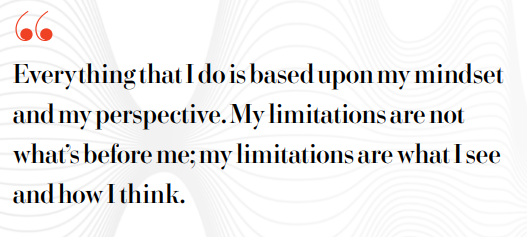
What Is the Power of Five?
In his book, The Power of Five for Network Marketing, John C. Maxwell identifies the five essential priorities that separate successful people from the unsuccessful—and explains why each one is so important:
1 / Growth
Individuals must become intentional in their personal and professional growth as well as committing to the growth of those around them.
2 / Connecting
The ability to connect with others on common ground is essential to sharing a vision with them—which leads to better collaboration.
3 / Mindset
Learning how to think like a successful individual is key to becoming one.
4 / Leadership
The limit of every person’s future is not dependent upon their company, but upon their leadership ability.
5 / Significance
Being able to make a difference for others leads to a happier, more fulfilling life.
SUBSCRIBE TODAY to learn from guests John C. Maxwell, Suze Orman, Jay Shetty, Les Brown, Kindra Hall and more!
From the February 2022 issue of Direct Selling News magazine.

